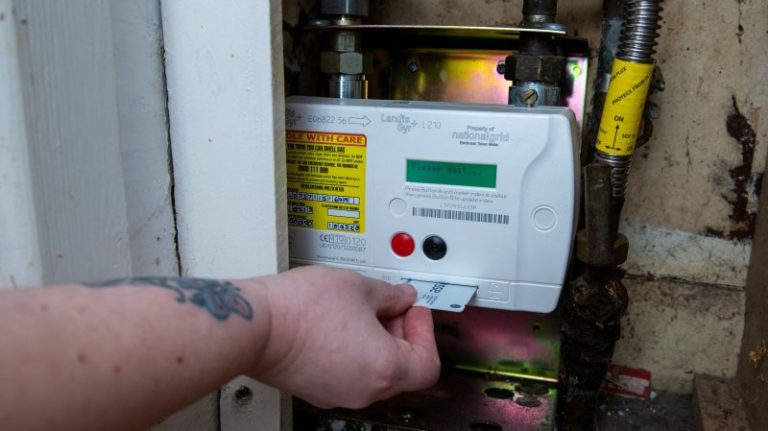Tata Steel workers and suppliers receive £13.5m emergency fund
The government has released £13.5 million of “emergency” funding to support supply chain businesses and workers affected by Tata Steel’s plans to restructure its UK steel operations.
The funds are the first to be provided by a transition board for Port Talbot in South Wales, where the Indian-owned company is closing its two blast furnaces and moving to greener forms of steelmaking with the loss of up to 2,800 jobs.
One furnace has closed and the remaining furnace is set to close early next month.
The Conservative administration agreed a £500 million support package last year for Tata, which intends to invest £750 million to build a less carbon-intensive electric arc furnace that would employ fewer workers and take years to come into operation.
Also set up was a government and union-led transition board with access to £100 million of funding to invest in skills and regeneration programmes in the local area, with £80 million provided by the state and £20 million by Tata.
Alongside the release of the first tranche of that funding, ministers are locked in discussions with Tata over securing a better deal for the industry.
The Labour government has previously urged Tata to reconsider a compromise plan supported by the Community and GMB unions to retain one of the blast furnaces, which has a lifespan that could run into the early 2030s, until the electric arc furnace is operational.

However, the proposal is estimated to be more costly for the taxpayer and has been rejected by Tata.
Labour has pledged a £3 billion “green steel” fund to support the overall steel industry in its transition, which includes the £500 million of support for Tata agreed by the Conservatives.
Jo Stevens, the Welsh secretary, will announce the £13.5 million funding on Thursday at her second meeting as chairwoman of the transition board. She will also visit a local manufacturer and a Tata supplier.
Stevens said that government negotiations with Tata on a new deal were at a “critical point”.
“It’s quite personal for me,” she said. “I grew up near Shotton steelworks and in 1980 6,500 people lost their jobs overnight. It’s still the single biggest industrial redundancy in western Europe. I just saw what that did to my generation, it sort of pulled the rug from under our feet and it took us decades to recover.”
She added: “Basically everybody in my school had family who worked at the steelworks or in the supply chain or in the local economy. I feel very personally determined to make sure this does not happen in Port Talbot.”
Stevens, the MP for Cardiff East, said that the initial £13.5 million “safety net” funding would help to “address the immediate emergency caused by the uncertainty around Port Talbot’s future”.
It will support local supply chain businesses which are heavily reliant on Tata as their primary customer to pursue new markets and customers. Money will also be available to workers affected by the transition, helping them to find new jobs, training and skills.
Stevens said there would be further announcements on the next tranches in the coming weeks.
More than 50 businesses, including the Royal Mint, Cardiff Metropolitan University and RWE Energy, have signed a pledge to support workers forced to leave their jobs at the steelworks.






